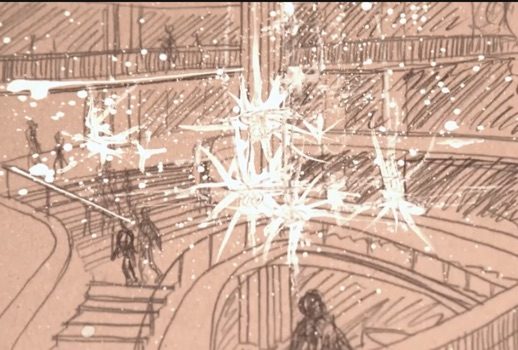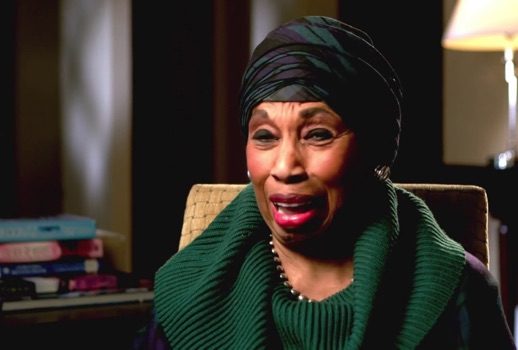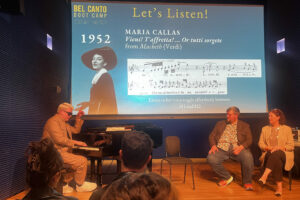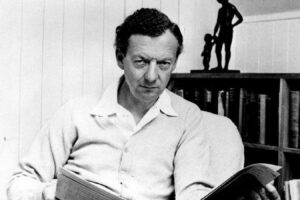

Before Lesli Klainberg, Executive Director of the Film Society of Lincoln Center, introduced Froemke, the Film Festival’s trailer was shown revealing a neat confluence—the first of the many short clips featured Luis Bunuel’s The Exterminating Angel which was the opening night feature at the very first NYFF in 1963. On October 26 the Met presents one of the most highly anticipated events of its season, the US premiere of a new opera by Thomas Adès based on that very film.
Froemke’s involvement with documentaries dates back to her long association with the celebrated Mayles brothers; she was the editor and associate producer for perhaps their most famous (or infamous) work, the 1975 cult favorite Grey Gardens about “Little Edie” Bouvier Beale and her mother, eccentric relatives of Jacqueline Kennedy Onassis living in squalor in East Hampton.
More recently she has often collaborated with Peter Gelb, the Met’s General Manager. Her film The Audition, a study of the 2007 finals of the annual National Council Auditions, features an enviable roster of upcoming stars including Michael Fabiano, Angela Meade, Jamie Barton and Amber Wagner.
The Opera House, her newest project, tackles the complex gestation of the current Metropolitan Opera House. It traces the long dissatisfaction with the “old” house dating back to early 20th century and the numerous aborted attempts at relocation. As someone who never experienced the “yellow brick brewery” on 39th street, I was fascinated by her compelling mix of stills, vintage footage and talking heads which delineate the glories as well as the gross inadequacies of that theater.
The meat of the film deals with the complex issues in the 1950s and 60s facing the realization of the dream of a vast performing arts complex on Manhattan’s Upper West Side. Froemke outlines the sweeping and controversial dreams of Robert Moses who masterminded many other local urban renewal projects of the time. She neatly counterbalances the social and political arguments for Lincoln Center with interviews with two men whose families were among the thousands traumatically displaced by the demolition of acres of tenement housing to make way for the new construction.
Those who attended this spring’s gala celebrating the 50th anniversary of the opening of the new house got a few short previews of Froemke’s film. One of the most delightful clips shown that evening dealt with the birth of the design of the Met’s splendid crystal chandeliers. Architect Kyna Leski reveals that the spectacular star-burst configuration was the result of a last-minute, accidental ink splash by her father Tad Laski.
It’s a moment of life-giving spontaneity during the years and years of bitter in-fighting among those responsible for designing the various components of the Lincoln Center complex. Those disagreements and inevitable yet crushing budget compromises were particularly injurious to Wallace K. Harrison who commanded the entire project in addition to being the chief architect of the Met itself. You have to wonder how they ever got the whole thing done!
But the clip that stole the show in May was footage of Leontyne Price shot shortly before her 90th birthday this year reminiscing about the production of Antony and Cleopatra which opened the new house. The gala audience that evening gasped (as did last night’s) when Price sang the opening line of “Give me my robe,” Cleopatra’s great monologue, with a voice nearly untouched by the passing decades.
Clearly Froemke realized that she had something very special in the deliciously delightful Price interview because she uses it extensively throughout the documentary. However—and I expect to be booed on this point—the inclusion of so much about Price as well as about Antony nearly unbalances the film. It’s of course uproarious to witness Price slyly sharing about how being onstage with tall, handsome, irresistible Franco Corelli made it so very hard to keep her mind on her singing but eventually all those stories get off-message.
With lots of relatively unseen footage available of the monumentally fraught rehearsals for Antony, one can readily understand why she includes so much of it. But it just goes on too long, particularly when one knows now that although the house itself was judged a success on September 16, 1966, the opera most definitely was not, a point on which the film hedges. And at a running time of 108 minutes, the enterprise could profit from being shorter by 10 or 15 minutes.

The wisely chosen background music throughout contributes greatly to the film’s effectiveness, particularly the use of Wagner: the opening of Das Rheingold, bits of Parsifal and concluding with Nina Stemme’s “Liebestod” from just last year.
Although I inevitably sit in the orchestra level these days, I was upstairs for the screening and was reminded once again of how thrilling it is when those glorious chandeliers rise as each performance is about to begin. Seeing the documentary in the very building that is its subject was an unforgettable, indelible treat.
Although I missed the opera house’s first 15 seasons, since 1982 I’ve attended far too many performances there to count. After that long an acquaintance, it’s easy to take the place for granted, but Froemke’s film invited me to appreciate anew its strengths and weaknesses.
Those who have been to the Met just once or many times will want see The Opera House as will those yet to attend a performance there. Information about future showings will no doubt be forthcoming. At the moment I’m only aware of an encore screening on October 15, the final day of the New York Film Festival, at the Francesca Beale Theater in the Film Society’s Elinor Bunin Monroe Film Center.

























Comments